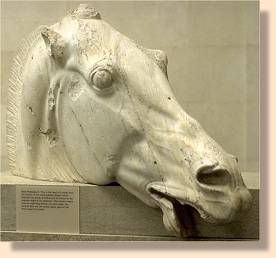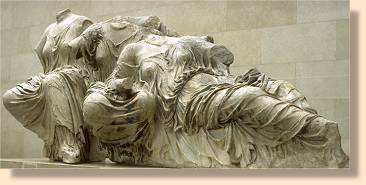
FRIENDS OF THE BRITISH COMMITTEE

FRIENDS OF THE BRITISH COMMITTEE
 Elissavet Papazoe,
Greek Minister of Culture , opened the event by reaffirming her total support
and commitment to the restitution of the Parthenon marbles. She also announced
that many of the problems which had plagued the new Acropolis Museum have now
been solved. (see the New Acropolis Museum
page for details).
Elissavet Papazoe,
Greek Minister of Culture , opened the event by reaffirming her total support
and commitment to the restitution of the Parthenon marbles. She also announced
that many of the problems which had plagued the new Acropolis Museum have now
been solved. (see the New Acropolis Museum
page for details).  Sir Kenneth
Alexander, former Chancellor fo the University of Aberdeen , chose to speak
as a Scot, pointing out that "two Scots play a historical role in our current
concern and another three Scots may have a rold to play today: Lord Elgin who
brought the Marbles to Britain in 1816 and Lord Byron who campaigned and died
so "that Greece might still be free". The other three Scots are Robert Anderson,
present Director of the British Museum, Robin Cook, the Foreign Secretary who
would probably be involved in any negotiations and Tony Blair, the ultimate arbiter."
Sir Kenneth
Alexander, former Chancellor fo the University of Aberdeen , chose to speak
as a Scot, pointing out that "two Scots play a historical role in our current
concern and another three Scots may have a rold to play today: Lord Elgin who
brought the Marbles to Britain in 1816 and Lord Byron who campaigned and died
so "that Greece might still be free". The other three Scots are Robert Anderson,
present Director of the British Museum, Robin Cook, the Foreign Secretary who
would probably be involved in any negotiations and Tony Blair, the ultimate arbiter."
| Return to International Supporters page | Return to Home Page |